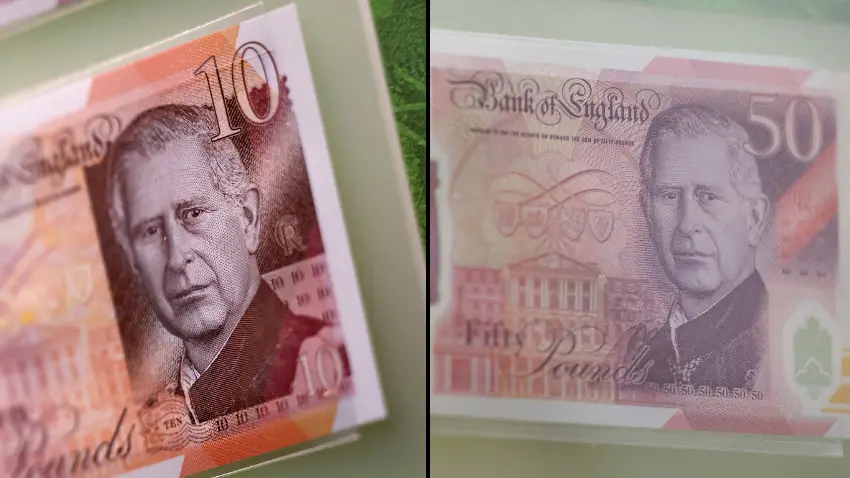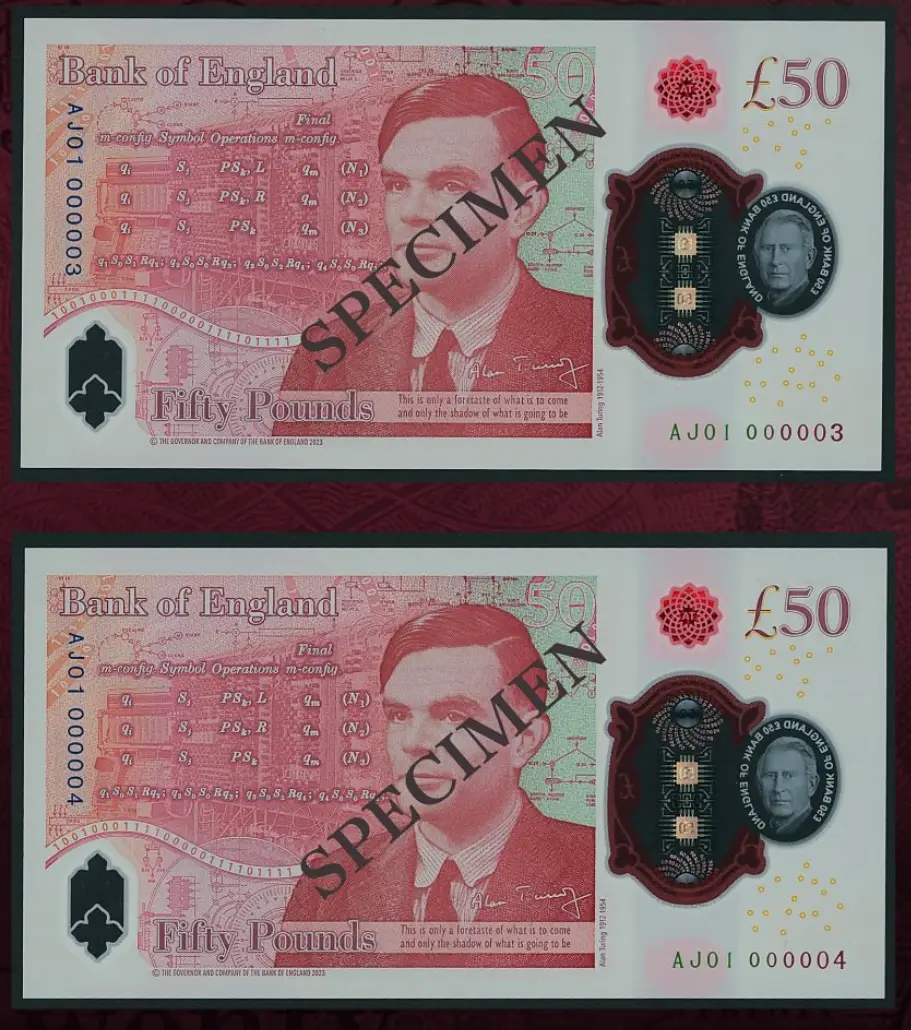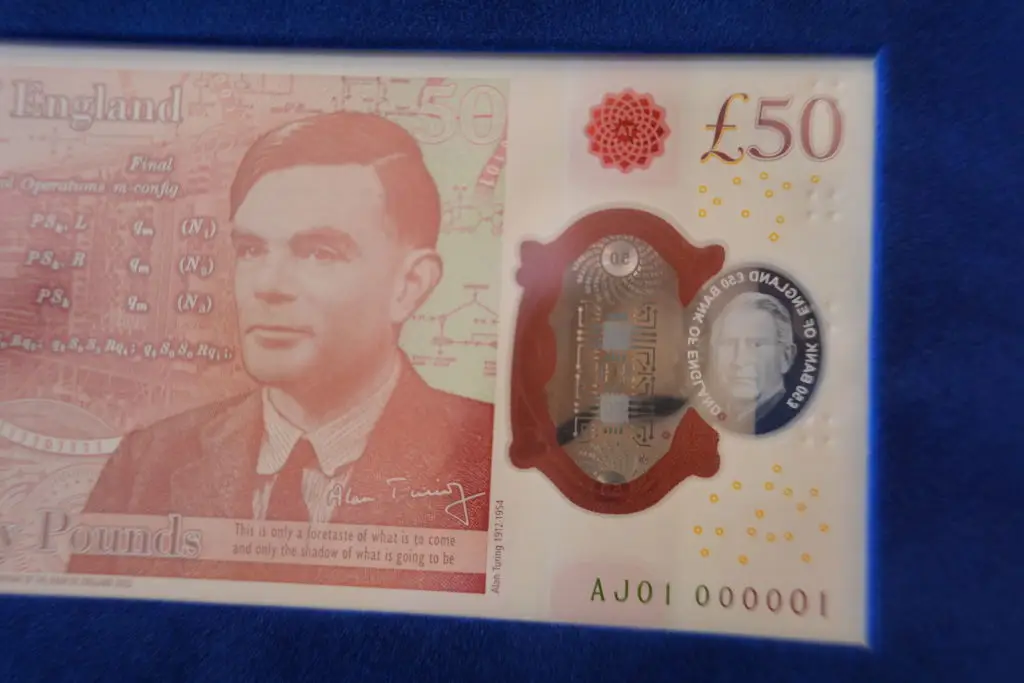
A wise person once said that money only has value because we collectively agree it does.
It may be a little bit of metal or a polymer sheet but we abide by the numbers stamped on them to maintain this agreement.
Whichever way you slice it a fiver is a fiver and you can't use that quid in your pocket to pay for something that costs more than a quid.
However, there are some bits of money that people will actually buy for more money than the money is worth.
Advert
At a Spink and Son charity auction yesterday (24 July) a plethora of new £50 notes with King Charles on them went for prices much higher than the face value of the note.

The first one up for auction sold for £14,000, while the second note was auctioned off for £5,800, as was the third.
The fourth went for £7,500 and in total 258 individual £50 notes were auctioned off, with the final one going for £1,300.
So why on Earth would someone be paying thousands of pounds for a £50 note?
I'm glad you asked, dear reader, and it's all to do with the serial numbers printed on the British banknote.
If you've got any notes with you right now you can have a look for yourself - have the note so the portrait of the whomever is on there that's not the monarch is facing you and look into the bottom right corner.
This is what makes the notes so valuable to collectors, as the lower the serial number the more people want the note.

Certain collectors like to get notes with their own birthdays on them, but normally the prize pieces are the earliest printed notes.
The very lowest serial numbers don't normally enter circulation as they're instead handed to the King, prime minister, chancellor, whomever designed the note and the Bank of England's chief cashier.
The £50 note which was sold for £14,000 had the serial number AJ 01 000003, the pair that went for £5,800 each had the numbers AJ 01 000004 and AJ 01 000005.
Meanwhile, the note that sold for £7,500 was AJ 01 000007.
This new King Charles £50 isn't the most valuable of the new polymer notes sold at auction, as a £10 note with the serial number HB 01 000002 sold for £17,000.
If you're hoping to suddenly find one of these notes in your wallet then I have some bad news, the people who bought this currency probably aren't planning on spending it and would rather keep it as a collector's item.
Still, it never hurts to check does it?
Topics: Money, UK News, King Charles III